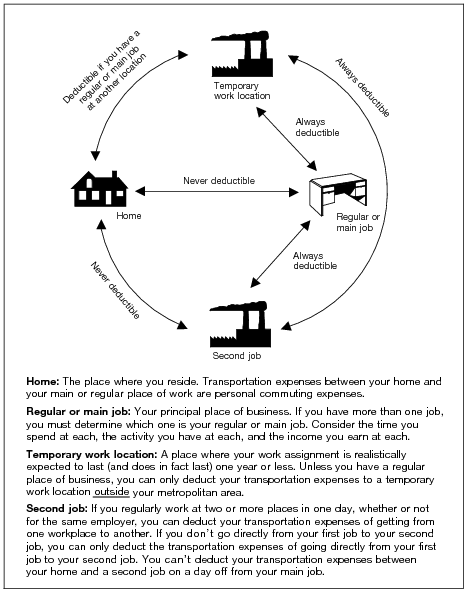Automobile and Vehicle Expenses
New Mileage Rate for Automobile and Vehicle
Today, the Internal Revenue Service released the optional standard mileage rates for 2023, which are used to determine the expenses that may be deducted for automobile mileage expenses when driving a car for work, charity, medical care, or relocation.
The following are the regular mileage rates for using an automobile (as well as vans, pickups, or panel trucks) as of January 1, 2023:
- The rate for the second half of 2022 is set at 65.5 cents per mile driven for commercial purposes, an increase of 3 cents from the midyear rise.
- According to the enhanced midyear rate scheduled for the second half of 2022, active-duty members of the military who qualify must pay 22 cents per mile driven for medical or relocation purposes.
- 14 cents per mile driven for philanthropic purposes; the rate is regulated by law and will not vary beginning in 2022.
Along with cars powered by gasoline and diesel, these prices also apply to hybrid and electric vehicles.
IRS Comments:
A yearly analysis of the fixed and variable expenses of driving a car serves as the foundation for the standard mileage rate for business use. The rate for relocating and medical expenses is calculated based on variable costs.
It is significant to note that under the Tax Cuts and Jobs Act, taxpayers cannot write off unreimbursed employee travel expenditures as a miscellaneous itemized deduction. Additionally, taxpayers are not permitted to deduct relocation costs unless they are active-duty members of the armed forces traveling in accordance with instructions to a permanent change of station. See Moving Expenses for Members of the Armed Forces for further information.
The option to calculate the real expenses of operating a car, as opposed to utilizing the normal mileage rates, is always available to taxpayers.
The standard mileage rate is an option that taxpayers have, but they often have to choose it the first year the automobile is accessible for business usage. Later on, clients might decide between real expenditures and the usual mileage rate. If the standard mileage rate is set, leased cars must utilize the standard mileage rate method for the duration of the lease (including renewals).
Notice 2023-03, The maximum automotive cost used to determine the allowance under a fixed and variable rate (FAVR) plan is also included in the PDF, along with the optional standard mileage rates for 2023. The notice also specifies the maximum fair market value of vehicles given by the employer that may be valued under either the fleet-average valuation rule or the vehicle cents-per-mile valuation rule beginning in calendar year 2023.
Interested in a free consultation? Contact us
When Are Automobile Expenses Deductible?
Overview:
What are the business transportation expenses that you can deduct when you are not traveling away from home? These costs include the cost of air, rail, bus, taxi, and other modes of transportation, as well as the cost of driving and maintaining your car.• Traveling within the city or general area that is your tax home to get from one workplace to another in the course of your business or profession.
- Paying visits to clients or customers.
- Attending a business meeting away from your usual workplace
- Traveling from home to a temporary workplace when you have one or more regular places of employment.
These temporary workplaces can be located either within or outside of your tax home.
Transportation expenses do not include expenses incurred while away from home overnight. If, on the other hand, you use your car while away from home overnight, you have incurred a car expense deduction.
Daily transportation costs incurred while traveling from home to one or more regular places of business are generally nondeductible. There may, however, be exceptions to this general rule. You can deduct daily transportation costs incurred between your home and a temporary workstation outside of your home’s metropolitan area. Daily transportation expenses can also be deducted if
- You have one or more regular work locations that are not your home; or
- Your primary place of business is your home, and you incur expenses traveling between your home and another work location in the same trade or business, regardless of whether the work is temporary or permanent, and regardless of the distance.
Temporary work location
If you have one or more regular work locations away from home and commute to a temporary work location in the same trade or business, you can deduct the daily round-trip transportation expenses between your home and the temporary location, regardless of distance. Unless facts and circumstances indicate otherwise, your employment at a work location is temporary if it is realistically expected to last (and does in fact last) for one year or less.
If your employment at a work location is realistically expected to last more than one year, or if there is no realistic expectation that the employment will last one year or less, it is not temporary, regardless of whether it actually lasts more than one year.
If your employment at a work location is initially realistically expected to last for one year or less, but it is later realistically expected to last for more than one year, that employment will be treated as temporary (unless facts and circumstances indicate otherwise) until your expectation changes.
It will no longer be considered temporary after the date you determine it will last more than a year. If your temporary work location is outside of your regular work area and you stay overnight, you are traveling away from home.
No regular place of work
If you do not have a regular place of employment but normally work in the metropolitan area in which you live, you can deduct daily transportation costs between your home and a temporary work site outside that metropolitan area.
A metropolitan area, in general, includes the area within the city limits as well as the suburbs that are considered part of that metropolitan area. Daily transportation costs between your home and temporary work sites within your metropolitan area are not deductible. Commuting expenses are not deductible.
Reminder:
If you are entitled to a reimbursement from your employer but do not claim it, you cannot deduct the expenses that are covered by the unclaimed reimbursement. This is a miscellaneous deduction that is no longer allowable as a result of the suspension of miscellaneous itemized deductions subject to the 2% floor under section 67. (a).
Two places of work
If you work at two places in one day, whether for the same employer or not, you can deduct the cost of transportation from one location to the other. However, if you do not travel directly from one location to the other for personal reasons, you cannot deduct more than the amount it would have cost you to travel directly from the first location to the second.
Commuting expenses include transportation costs between your home and a part-time job on a day off from your main job. They are not deductible.
Commuting expenses
You cannot deduct the costs of taking a bus, trolley, subway, or taxi, or driving between your home and your main or regular place of employment. These are personal transportation expenses. No matter how far your home is from your regular place of work, you cannot deduct commuting expenses. Even if you work while commuting, you cannot deduct your commuting expenses.
Example. While commuting to and from work, you occasionally use your cell phone to make business calls. Business associates may ride with you to and from work on occasion, and you may have a business discussion in the car. These activities do not transform the trip from personal to professional. You cannot deduct your transportation costs.
Parking fees.
Parking fees at your place of business are not deductible for commuting expenses. When visiting a customer or client, you can, however, deduct business-related parking fees.
Hauling tools or instruments
Hauling tools or instruments in your car while commuting to and from work doesn’t make your car expenses deductible. However, you can deduct any additional costs you have for hauling tools or instruments (such as for renting a trailer you tow with your car).
Union members’ trips from a union hall
If you get your work assignments at a union hall and then go to your workplace, the transportation costs from the union hall to your workplace are nondeductible commuting expenses. Despite the fact that you require the union to obtain work assignments, you are employed where you work, not where the union hall is located.
Office in the home
You can deduct your daily transportation costs between your home and another work location in the same trade or business if you have an office in your home that qualifies as a principal place of business.
Examples:
- You regularly work in an office in the city where you live. Your employer sends you to a 1-week training session at a different office in the same city. You travel directly from your home to the training location and return each day. You can deduct the cost of your daily round-trip transportation between your home and the training location.
- Your principal place of business is in your home. You can deduct the cost of round-trip transportation between your qualifying home office and your client’s or customer’s place of business.
- You have no regular office, and you don’t have an office in your home. In this case, the location of your first business contact inside the metropolitan area is considered your office. Transportation expenses between your home and this first contact are nondeductible commuting expenses. Transportation expenses between your last business contact and your home are also nondeductible commuting expenses. While you can’t deduct the costs of these trips, you can deduct the costs of going from one client or customer to another.
Take Note:
Car pooling.
You cannot deduct the cost of participating in a nonprofit carpool. You should not include payments from passengers in your income. These payments are considered expense reimbursements. If you run a carpool for a profit, however, you must include payments from passengers in your income. Then you can deduct your car expenses (using the rules in this publication).
Advertising display on car
Putting display material that advertises your business on your car doesn’t change the use of your car from personal use to business use. If you use this car for commuting or other personal uses, you still can’t deduct your expenses for those uses.
References:
Topic No. 510 Business Use of Car
Publication 463 (2021), Travel, Gift, and Car Expenses


